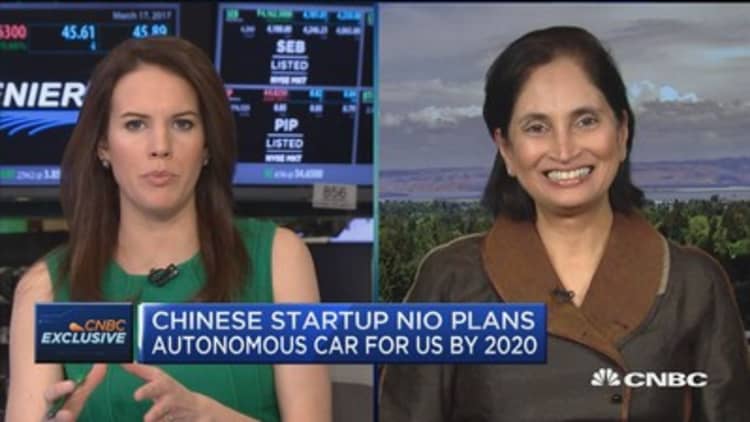
Autonomous electric car maker NIO (formerly NextEV) is not worried about going head-to-head with the likes of Alphabet's Waymo and Uber in self-driving cars, said its CEO Padmasree Warrior on "Closing Bell."
"Our mission is very different," she said. "Google could potentially be a partner, they could be a customer for us," she said.
While Alphabet's Waymo is focused on the autonomous driving stack — from connected lighters to sensors — NIO's focus is different, said Warrior, who was Cisco's CTO and is also a member of Microsoft's board.
"We are changing everything from the design of the car, the interior of the car," she said. "NIO Eve was actually designed inside out — we did the interior first and then the outside of the car, so it's a very different thinking."
"We are changing, for example, the network in the car so it acts more like the internet experience that you're used to," she said. "Most cars today have a network that is more like a dial-up modem and we need to bring that forward to bring it into the internet age."
The company has the funding to go head-to head with tech giants, and is on target to raise a billion dollars by the end of 2017, she said.
"Our target is really ownership — we are targeting people that have to commute," said Warrior.
NIO's autonomous electric cars will be available in U.S. in 2020.
"We call this autonomous vehicle a living space that moves you, so you can work in it, you can sleep in it, you can be entertained in it, that's the model we are going after," she said.
About 140 million people in American spend more than 30 minutes commuting each way to work and about four million people commute 90 minutes each way, said Warrior. That has a profound effect on families.
"There is a 40 percent in divorce rates if one spouse commutes more than 45 minutes each way," she said.


